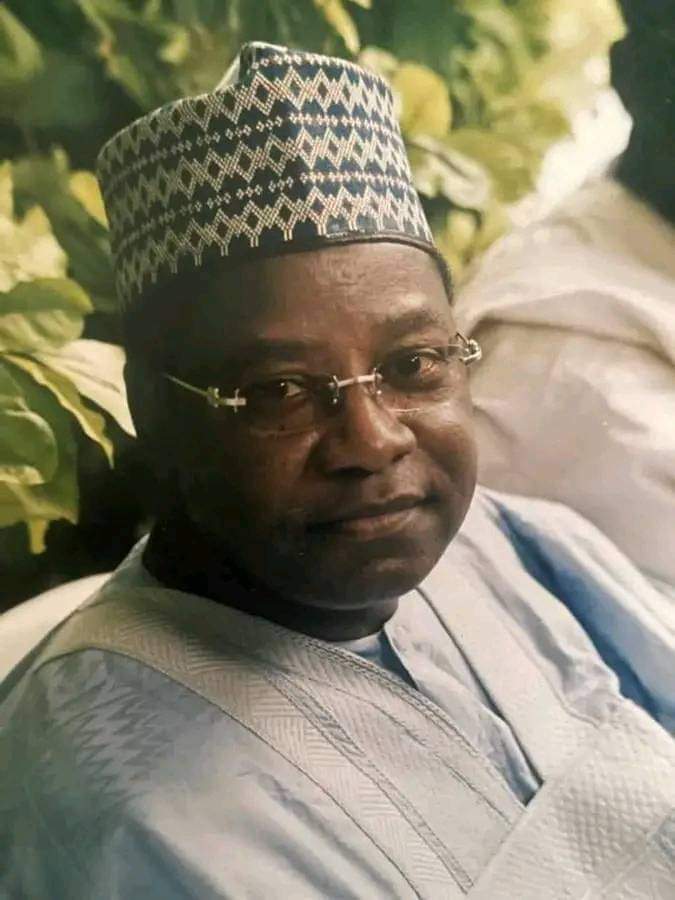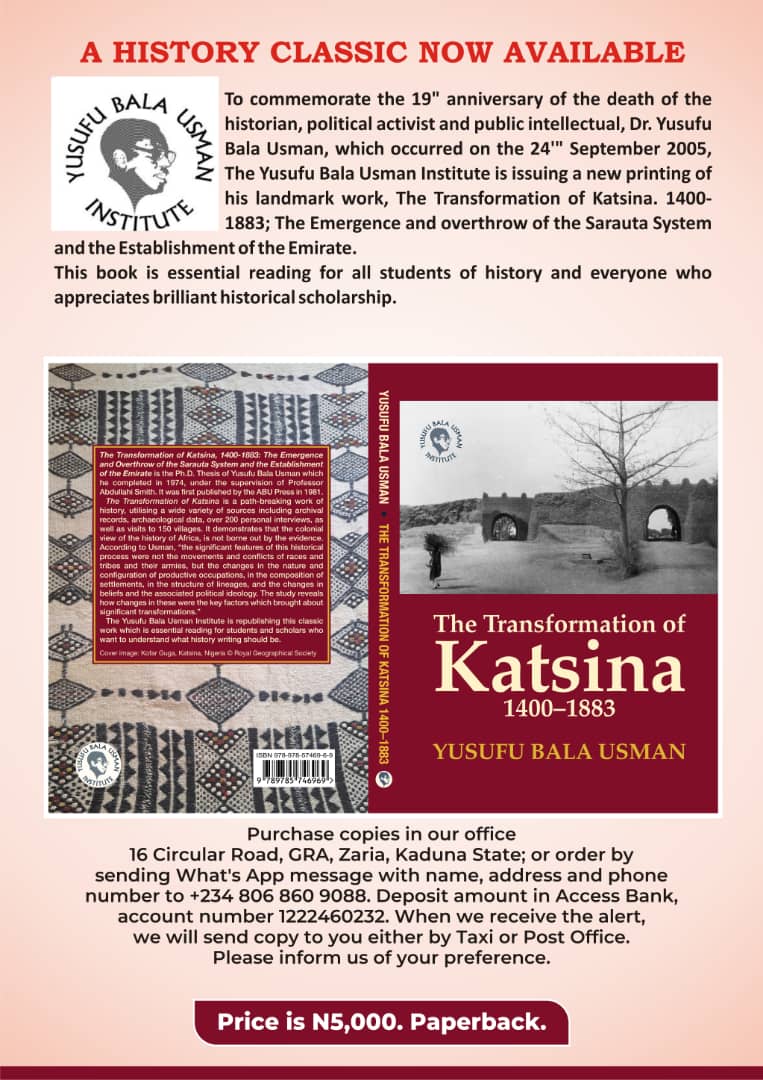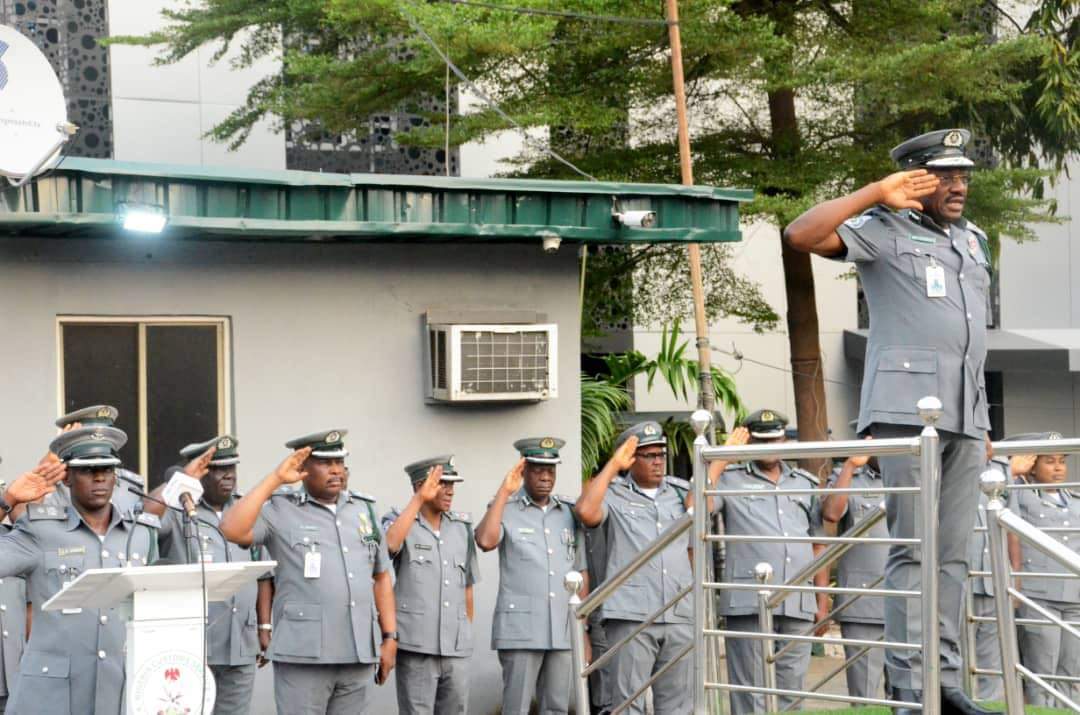Remembering The Late Ambassador Zakari Ibrahim, The Larger Than Life Talban Katsina.

- Katsina City News
- 20 Nov, 2024
- 84
By Abdu Labaran Malumfashi.
19-11-2024.
Let it be understood from the beginning of this write up that it is NOT a biography of the late Ambassador Zakari Ibrahim, but a mare rumination of my ‘brief’ encounter with, and knowledge of, the larger than life super human being that was the Talban Katsina, a traditional title glamourised by the ambassador, who inherited it from his father.
I was addressed by him as ‘Mutumin’, a nomenclature which I did not know whether some others were similarly referred by him. But whenever or wherever we met, he would address me as ‘Mutumin’, even though he knew my name very well. He was a one time Principal at the leading male secondary school in my neck of the woods, Government Secondary, NOW Unity, school Malumfashi. I was not a student there, though, but he it was that employed the younger brother of my father as a labourer in the school.
I stated that this was not an autobiography of the man because, apart from a few people around him, I knew absolutely nothing more about him, outside his work places, which gave him his larger than life image. Above all, he was a very generous person who hated ANY guest (whatever their social status) leaving his house or office without accepting a gift in cash or in kind from him.
I know one of his children, Alhaji Ibrahim Zakari Ibrahim, who at one time served as a Special Adviser to a former Katsina state Chief Executive, without taking any salary or allowances from the government. The junior Zakari, like his father, is also generous to a fault. This writer can testify to the fact, because he is in the habit of giving some money unasked. I also know the deceased’s half brother, Alhaji Mannir Talba, Alhaji Ummaru, popularly known as ‘Ogunse’ (a former manager of the Talba United Football Club), and one of his regular companions, Alhaji AbdulAzeez Musa Dankano. Alhaji Dankano accompanied him to Katsina most of the times he came.
Ambassador Ibrahim Zakari was no doubt a prince of the world, as he was friends to presidents, heads of government and the wealthy, as well as the common people, like myself.
On many occasions when he came to Katsina, the amiable Ambassador Zakari would ‘invite’ the lowly me to his house. And the first question he would ask when he saw me was, ‘Menene labarin qasa, Mutumin?’ Roughly translated, his question to me was, ‘What is the news in the country, my man?’ I would then politely tell him that, he ‘knew everything worth knowing about, and in, the country’, to which he would smile briefly and go to the reason for the ‘invitation’ to see him.
Most of the times he wanted to subtly pass on a piece of information to the media in Katsina, he would first ‘invite’ me to his house to tell me to invite "your colleagues for me, I want to speak to them”. And so it would be arranged the way he wanted it.
One time in 2005, the Talban Katsina ‘invited’ me to his Katsina house, and without any preamble asked me to “arrange a meeting between your bosses at the headquarters, you and myself at my Kaduna house”. And the meeting was arranged as he wanted.
Some days before the meeting, he called me on landline telephone and asked me to cancel it. He told me that he was going to chair the exact same meeting at his Katsina house on the request of the governor of Katsina state, Malam Umaru Musa Yar’adua, to be attended by the governor and three (unnamed) others. So the Kaduna meeting was cancelled.
But two days to the Saturday 8.00pm meeting in his Katsina house, he called yours sincerely to apologise and tell me that the venue of the scheduled meeting had been changed to the Katsina Government House at the residence of the Governor, still billed for the same time. He explained that President Obasanjo had called him to the Villa to submit the report of an earlier assignment given to him by the president himself, at the day and time of the Katsina meeting. The assignment, as I later came to understand, was the reconciliation of some key members of the then ruling party in the country, the People’s Democratic Party (PDP).
So after a brief argument about the venue of the meeting, the governor won the day and the meeting was moved to the government house, Katsina, instead of the house of Ambassador Zakari. And as the saying goes, ‘the rest is history’, for both the two meetings, the one in the Villa, Abuja, and the other, in Katsina.
The last encounter, not meeting, with him was in Asokoro, Abuja, about three years ago. The occasion was the wedding of the son of Alhaji Dahiru Mangal to the daughter of an Abuja based wealthy Kano man. My former principal was the ‘father’ of the groom and his ‘Wakili’ (Representative of the groom)’. Though a Director General in charge of Media, I was however, NOT close to the boss, since sighting me appeared to have made him very angry, regardless of who was with him or with me.
On that day, as on any other day the principal happened to be at an event away from the base, I usually sat in front of the press crew bus, with the legend prominently emblazoned on its sides. As I sat in front of the bus, a gentleman who came out of the venue of the wedding, accompanied by some children, suddenly stopped and stared at me intently. After a brief moment, he continued ahead.
After he disappeared from sight, I turned and faced my colleagues sitting in the back of the bus
and mentioned the incident to them, and two of them told me the gentleman was Ambassador Zakari Ibrahim. I angrily asked why they did not inform me that the gentleman was the Talban Katsina, before he disappeared from our sight. I jokingly told them that they had inadvertently cost us some money. We all laughed, but it was the truth.
May God forgive Talban Katsina, Ambassador Zakari Ibrahim all his sins and shortcomings and put him in paradise, and may He also grant those he loved but left behind, such as his family, sincere friends and acquaintances, as well as the emirs of Katsina and Daura, the fortitude to bear the great loss.
Malumfashi wrote from Katsina.





